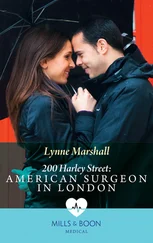The brand of jeans that the odd inquisitive woman wears could have meaning, since everything means something, even if it is not anything much, negligible, or hardly worth mentioning, and, even though interpretations change and often meanings are temporary, especially those about a brand, her jeans still affect my relationship to her, since much harbors in trivialities, though not as much as in profound words and acts, whose significance can also be debated and more likely is. It was the second time I had seen her, a stranger, and both times she'd been presumptuous and provocative, calling attention to her ability to see through me. She had given advice and asked questions, and she had made warnings of a sort, like a sibyl, so I would remember her words, even if I didn't want to. Yet little of what I want may be remembered, and what is, is memorialized, since each of us builds an altar to our memory with tokens and objects set on it, since memory distinguishes humans from animals, though some animals appear to remember, and my favorite stories are about cats and dogs who have lost their way or been abandoned and who have traveled hundreds of miles to find their way home, even when they weren't wanted, though sometimes they were, and, without a map or a way of asking questions, they have returned.
It was when my dog found her way after having been lost in the woods that my father's resistance to her, since at first he didn't like her, because he didn't like dogs and she was pregnant, transformed into something approximating love, and I too have had the same experience about a cat I didn't like that was, nonetheless, mine. The idea that the cat might fall out of a window and would not be, as he usually was, hiding behind the refrigerator, pricked me, since I'd left my window wide open, I realized later at the library, and the diffidence I felt toward the difficult, troubled cat turned into affection, at least for a time, when I found him safe, concealed behind the refrigerator. Later, he went mad and attacked me, leaving four indentations on my left calf. When my father began to love my new dog, it was Christmastime. We were on vacation, my brother had already left us, the dog might have been a substitute for my brother, a present or companion, life offers a plethora of substitutions, since I was an only child now or their substitute son, but still I didn't go into my father's business. It had been snowing for days and days, and a magical terrain lay before my happily startled eyes. The dog and my father marched into the woods once we were settled into our rustic cottage in the mountains, snow everywhere and more of it falling, and, while walking, the short-legged, long-tailed tawny dog was swallowed by winter's heavy coat, and soon my father lost her, but to his credit, though he doesn't deserve much in regard to the dog, he looked for her for an hour. Not finding her and having become cold, he returned to his room, where the dog sat at the door, so glad to see my father, her tail whipped in gleeful circles, and my father now loved the dog he decided was smart as well as loyal. But this love was disastrously short-lived. Everyone has a tale about an animal's devotion that exceeds reason, the loyalty demonstrated by it and its heroic acts. People love their animals because their animals love them, they say, in ways no one else would, without carping judgments, and animals help the sick and elderly, they know not to hurt small children, except my deranged cat who couldn't make distinctions, and after a while, no one could enter the house for fear of the cat's attack, but in many ways I didn't mind, since I don't want people to come to my house, to see what I have on my shelves or my walls, to make judgments, which are necessarily inadequate, since what I think I am, unlike an animal's love and undying loyalty, is impossible to display. But then this is a notion, disposition, habit of mind, or humor I'm working to disinhabit or more completely inhabit, an understanding of which I'd like to accomplish here, to discover its validity or lack, and in the room that is not for sleeping, where I light fires and watch them, my ideas or objects lie strewn over the floor, and I mean to do something with them in this regard.
If I can imagine it, I often ask myself, does it need to happen or be accomplished, and, do I need to realize it, since fantasies impress upon the senses as much if not more than actualities. I'm in a room in the clapboard hotel near the edge of town, an airy old building, where it's cold inside, and the kitchen helper has sneaked up the stairs, though the reception area is cheerfully free of guards, and in the bedroom, with its inviting white comforter, he and I undress. His skin pleases me, since it didn't yet show the stress and weight of life, except in a few patches where he'd bruised or scratched himself, with a scar or two, the one beneath his chin endemic to kids who ride bikes, but caressing his skin is touching a new velvet, he's almost hairless, like a newt, even more naked in the frigid room, since nakedness never is familiar entirely, not to me, anyway, because the body has its own legislation, yet it's also legislated by individuals, families, governments, and religions who spend a lot of time conspiring to restrict and limit its disorderliness, which attests to nothing being natural in the way human beings use the term, because what could be more natural than a body's excretions, secretions, farts, noises, and hungers that are restrained and suppressed most everywhere. Though many women, like a few in residence, starve themselves and pretend, especially the psoriatic one, to the point of fainting, that they are not hungry, when they are more hungry and have greater appetite than many others, even those who eat and eat and are still not satisfied. Anorexics look hungry, have poor complexions, and are cloying dinner partners, since they refuse to admit their condition as they inflict it upon others in sly, petulant doses, and sitting next to the disconsolate woman at dinner as she haughtily denied herself, cherishing how little she ate and how much everyone else had, is inhibitory. Inhibition is contagious, especially in its righteous versions. Anorexics spend most of their time hiding, especially their bodies, most curiously wearing layer upon layer of clothes to appear heavier than they are, when they want to be perceived as thin, since they know that exposure reveals their fleshless, skeletal bodies, and so they conceal them. Also they are as cold as corpses.
His erection might have been for anyone, democratically hot and hard, and I felt a palpable reversal of positions, for when I was his age I sometimes lay with men many years older, who were supposed to teach me something, as if we were in France, and mostly I wasn't taught-the most unappetizing sex I ever had was with a Frenchman-and the older men were meant to be gentle, but most weren't, only one or two, and, since I was free, supposedly, and strong, even if just a girl in school, who supposedly knew what she wanted, who spoke well and read seriously, it was assumed I could do what I wanted and be what I hoped for, so then I could and should pursue pleasure, part of my birthright, though as Alexis de Tocqueville wrote of American women in the 19th century, it was that lone, unique freedom which damned them to unhappy marriages. The American social order, he theorized, was different from the European model, where a society that arranged marriages, which performed the social and economic work they were contracted to do, permitted and expected infidelities, and because they were not manufactured by love, these sensible, loveless marriages granted the partners ex-officio pleasures. But a free American woman, at liberty to choose a love match, paid the highest price. I have made choices, I have loved freely in some way, as I did little Johnny and others, and I have recollections of my lovers, or have retained knowledge of their smell and some unimportant habits. I have left men and been left by them, I have been cruel and made promises lightly, said I would return and didn't, and this is insignificant now except for inevitable remorse. In seclusion, when I honestly compare myself or try to distinguish myself from animals whose love is assumed to be indiscriminate, I apprehend my capacity to love both differently and similarly, since after its demise, I often don't remember the lover, can't comprehend why I had desired the object of my temporary affection, and can't recognize myself in the match. Also memory revamps itself. The temporary is contemporary, flowing in the veins, though humans behave as if permanence beat steadily in every transaction and feeling, in imaginary edifices of lifelong connection, inspired and conceived to deny their limited lifespans. Some love lasts, though. My mother and father were tethered to each other, my mother loved my father more than anyone, my father adored his brother, he didn't give my mother the kind of love she wanted, as her mother and father, whom she never mentions, didn't, so she couldn't know how to love, but then she may have received from her husband what she wanted, since love is perverse and enjoys its opposite, to which it reverts most conveniently. I never understood my father, his sadness and rages, I saw his joy and hope, and his humiliation, too, and when my brother vanished and his brother died, something left my father never to return. My brother might have broken my father's heart and contributed to his death. I should have taken over the business, yet when I was young, I didn't want to, but there is no business now, and also my father taught me too little about it, it wouldn't he the same, anyway, though I can imagine starting over in the American way. One morning, when I was caring for my mother, while she was eating a breakfast of loosely scrambled eggs and a lightly toasted English muffin, which she liked if it was soft enough, though her appetite was erratic, she was lucid. Looking at me, my mother said, "Your father was a very good lover." Stunned, I kept silent, and then my mother peered across the table at the windows to an unimpeded view of the city that included my favorite monument, the Empire State Building, which was constructed in sixteen months during the Great Depression that my mother and father lived through.
Читать дальше












